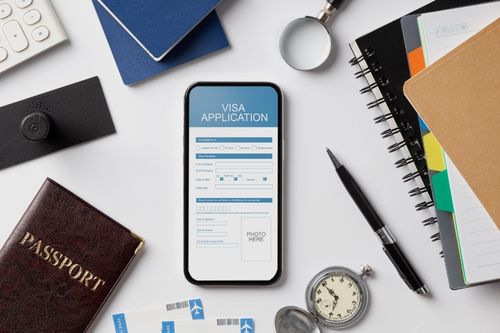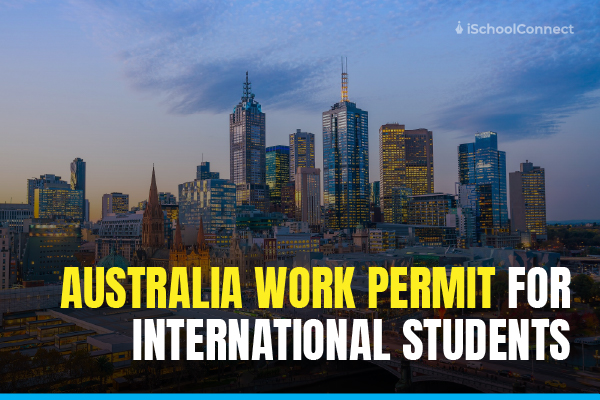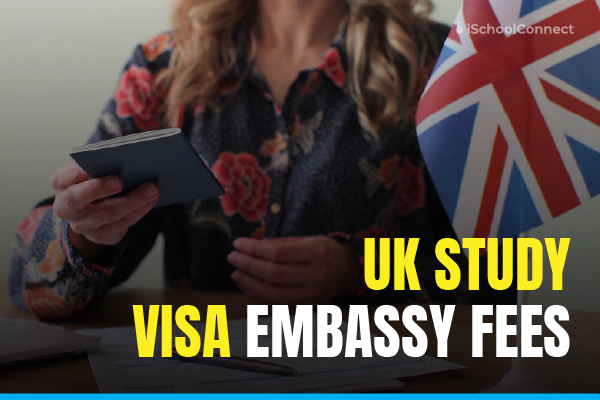Table of Contents
- How does Ireland help in career development?
- Why apply for a post-study work visa in Ireland?
- Types of Post-Study Work visa in Ireland
- Critical skills employment permit
- General employment permit
- Document requirements include the following
- Internship employment permit
- The application process for a post-study work visa in Ireland?
- Documents required with the application form for a post-study work visa in Ireland
- Key takeaways
- FAQ
How does Ireland help in career development?
Apart from being a top country with one of the best education systems, Ireland is also becoming a popular study-abroad choice for international students. Many international students apply for a post-study work visa in Ireland after finishing their studies to stay and work in the country. It occurs due to the benefits Ireland provides to non-EU residents, such as a low cost of living and a welcoming culture.
Why apply for a post-study work visa in Ireland?
Before we get into the specifics of post-study work visas in Ireland, let us first understand why international students prefer to work here. Here are the main reasons-
Ireland has many top companies
Ireland is home to a number of Fortune 500 companies, including Google, Apple, Johnson Controls, Facebook, and Microsoft.’ Apart from that, Ireland has become a hub for multiple businesses to thrive due to its well-structured work landscape.
Affordability of living expenses
One of the reasons why international students apply for a post-study work visa in Ireland is the low cost of living.
There is no language barrier
When international students apply to study in Ireland, they must pass an English proficiency test. Non-EU students will have no trouble navigating this country because English is the most widely spoken language in the world.
Lower unemployment rates
Another reason why non-EU students choose to work in Ireland after finishing their studies is the country’s high employment rate of 73.50% in 2022.
Types of Post-Study Work visa in Ireland

In Ireland, there are various types of postgraduate work permits. These are the ones international students must apply for.
Critical skills employment permit
The critical skills employment permit is for talented individuals who can contribute to certain sectors of the Irish economy that are understaffed. Formerly known as the green card, the cost of the permit is 1000 EUR/INR 79,778.
Eligibility criteria
- The employer must have registration from the government authorities of Ireland.
- Applicant must have a confirmed two-year job offer or stay in the initial company for at least a 12-month period.
- Job profiles should have a minimum base remuneration of 32,000 EUR/INR 25,52,868 per year, and the applicant should have at least a bachelor’s degree.
General employment permit
International students with this type of permit will be able to apply for any type of job profile unless the job is on the ineligible list for employee permits. The student can work under a 12-month contract. This permit is valid for two years and can be renewed for an additional three years. After 5 years, a person can apply for ISD for long-term residency in Ireland. The cost of this permit is 1000 EUR/ INR 79,778 for 6-24 months and 500 EUR/ INR 39,889 for 6 or less than 6 months.
Eligibility criteria
- Check that the employment type is not on the ineligible list for employee permits.
- Share the qualifications or experience for the position in accordance with the Labour Market’s need test.
- Applicants should get a yearly salary of at least 30,000 EUR/ INR 23,93,314 (27,000 EUR/ INR 21,53,983 for non-EEA students who graduated within the last 12 months).
Document requirements include the following
These documents are required to apply for a general employment permit and critical skills employment permit.
- A copy of your passport with your signature, picture, and personal information.
- Passport-size photograph in accordance with Ireland’s photograph requirements.
- A copy of your employment contract.
- A replica of the immigration stamp.
- Contact information.
- License number/Pin/Registration number of the company as issued by Government Ministers or regulatory bodies in Ireland.
- If necessary, a copy of the letter of support from Enterprise Ireland or the IDA.
- Employer information, such as the company’s registration number, name, address, and government certificates.
- Employment specifics, such as job duties, salary, tenure, and so on.
Internship employment permit
Students enrolled in an Irish institute for a Full-time course can apply for an internship employment permit. An internship employment permit allows students to work for a company to gain work experience by obtaining an Ireland work permit after completing their master’s degree. The cost of the permit is 500 EUR/ INR 39,889 for up to six months and 1000 EUR/ INR 79,778 for six to twelve months. The validity for an Ireland internship visa is for 12 months only and is not renewable.
Eligibility criteria
- The job should be present on the Critical Skills Employment/Occupations List.
- The salary must be at least or more than the national minimum wage.
- The course of study must be entirely/significantly concerned with the critical skills shortages identified on the Critical Skills Occupations List.
- The employment should help to improve the course being studied.
- Once you complete the internship, students must leave the state and return to the institute where they are enrolled to complete their education courses.
The application process for a post-study work visa in Ireland?

To apply for a work permit in Ireland after completing a master’s or bachelor’s degree, applicants must first decide which type of work permit they want to apply for. Once the applicant has decided which work permit to apply for, the next step is to fill out the application form. You can fill out the form online.
Applicants must complete the following in the work permit application form
- Personal Information
- Registration details
- Employment details
- Remuneration details
- Foreign Nationality details
Documents required with the application form for a post-study work visa in Ireland
Applicants must upload and attach certain documents to their application form.
You may need the following documents
- Valid Passport
- Passport-size pictures
- Signed Copy of the contract between the applicant and the employer along with employment details
- Contact Details
- Registration Details
- Employer Details
- Employment details
- Copy of the letter of support by Enterprise Ireland or IDA if needed
Key takeaways
- Ireland is a country with one of the best education systems, but it is also becoming a popular study-abroad choice for international students.
- There are three types of post-study work visas in Ireland- critical skills employment permit, general employment permit, and internship employment permit. The eligibility criteria and documents required for these visas are different.
- To apply for a work permit in Ireland after completing studies, applicants have to decide which type of work permit they need. The next step after that is to fill out the online application form, submit the necessary documents, and wait for the reply.
Did you find this blog informative? If so, please share your thoughts in the comments section below. Click here to contact us for more information on the post-study work visa in Ireland. We would be happy to assist you with your queries.
Liked this blog? Read next: Your handy guide to F1 visa
FAQ
Q1. Is it easy to get a PR visa in Ireland after completing my studies?
Ans- A student visa is only one of the requirements for obtaining permanent residency in Ireland. To obtain permanent residency, you must find a suitable job, obtain a work permit, and stay in Ireland for a minimum of five years.
Q2. What is the duration of a post-study visa in Ireland?
Ans- Post-study work visa duration in Ireland is two years for postgraduate degree holders and three to four years for undergraduate degree holders.
Q3. Does Ireland allow international students to work in the country?
Ans- You will be allowed to take up casual employment of up to 20 hours of part-time work per week in term time or up to 40 hours per week during college vacations. These vacations start from June to September inclusive and from 15 December to 15 January.







